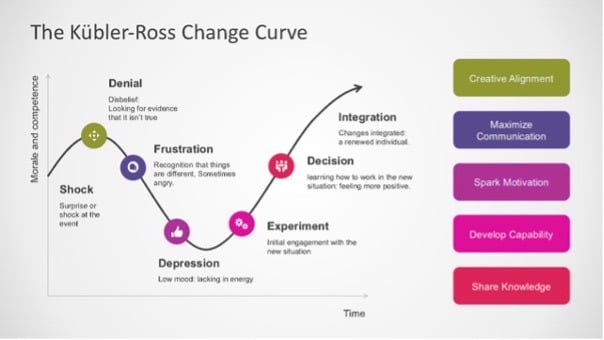
There’s no denying the last 18 months have been a real challenge for us all. As schools return this month, and commit to recreating normality for pupils, staff and their extended communities, Val Andrew believes it’s appropriate to reflect on what we’ve learned from the ‘COVID experience’ and how this can inform our ‘route map’ for the rest of the decade
At this time of the year schools are filled with the noise and chatter of excited pupils, re-energised staff and the smell of new paint and optimism for the new academic year. School business leaders are usually exhausted, having managed another six weeks of refurbishment, redecoration and reorganisation; this year has been especially problematic for premises-related projects as the scarcity of trades’ availability will have pushed deadlines to the limit. Nevertheless, the prospect of a new academic year can be infectious.
I recently posed a question on social media to gauge the mindset of our school business leadership community as the new school year looms, asking what is their single biggest concern for 2021/2. Responses, as expected, mentioned funding challenges, precarious budgets, managing ongoing COVID issues, catch-up projects, health and welfare of staff and pupils etc. However, I was particularly drawn to one specific comment – quoted in the title of this piece – and this set me thinking.
“I just want to get back to doing the job I love again……”
We tend to look back at the past and see only the good things – I used to have a ‘rose-tinted spectacle’ slide in lots of my presentations, comparing how the ‘good old days’ measured up to the challenges of the moment. Whilst there’s nothing wrong with having an optimistic view of the past, the danger is we can be unrealistically idealistic. For example, reflecting back on my own practitioner days, without the benefit of those rose-tinted glasses, yes we did seem to have more available funds in the early noughties but, working with a new headteacher at that time – new into headship and hot on the heels of a very successful and well-loved, highly respected predecessor – he was desperate to make his mark on the school. My challenge was keeping him focused on the school’s priorities rather than a portfolio of vanity projects. That’s just one example and I’m sure that, if we reflect on the past without the benefit of those lovely pink frames, we are able to see the challenges and the good bits in equal measure.
That comment in response to my question also reminded me that school business leaders are excellent at managing change in our schools but less inclined to apply the concept when it’s more inwardly focused. As part of the DSBM Level 4 programme, at Best Practice Network, we examine the concept of change management in detail as part of the Leading Support Services unit, applying the concepts to live situations we experience in schools. I like the Kübler Ross Change Curve (diagram below) when explaining the emotional responses to any change situation we experience at school. I think it’s especially pertinent now – those of you familiar with the Kübler Ross philosophy will know that, as school business leaders, we are essentially experiencing a range of different emotions in this post-COVID era that is a kind of grief – grieving the loss of our old lives (working and home). Whilst we might normally be able to cope with changes at work this time we’ve had a double whammy experience and that can be much harder to deal with. Arguably, for those of us taking the sustainability issues arising from climate change to heart on top of this – it’s a triple whammy!
It’s worth remembering the principles of the change curve and identifying with the emotions at each stage.

Splitting these stages into the three phases of crisis management
Phase 1/Crisis Phase – includes the shock, denial, frustration and depression stages of the curve. SBLs everywhere will identify with these emotions in relation to the impact that COVID had from February/March last year. Uncertainty about ongoing changes to working practices or, if your school is changing structure and becoming part of a MAT, or the MAT you are a part of is changing, there is the potential for your own role to be changing too – another source of the shock, denial, frustration, depression emotions. It’s hard when decisions are made that impact on you but are out of your sphere of influence, hence these emotional triggers.
We all react differently to this stage; for some of us a survival mechanism kicks in immediately and we go into coping mode, both organising and directing others around us with a very practical and people-centric approach. Others feel afraid, worried, uncertain and can be irritable because they feel a sense of panic. Neither reaction is good or bad – but being able to identify how you respond at this stage is useful in terms of self-help.
Phase 2/Acceptance Phase – these emotions incorporate experiment and decision on the curve and represent the phase of accepting the reality and a change of mindset. Narrowing your vision to the things that are within your scope of influence and parking the bigger picture stuff is key in this phase as is seeking practical solutions to the source of your anguish. Assessing the risks and looking for strategies you can implement to mitigate these risks helps to crystallise the change in mindset and can have a positive emotional impact – for example, accepting that working routines and systems are changing and how they might work for the better. Working from home, albeit for 1 day, or even half a day, to manage your time more effectively might be worth considering – the experience during 2020 has proven that we can be more effective and productive doing this – and looking to strengthen your CV if you feel you may, ultimately, need to look for a change of role – these could all be the kind of strategies that are relevant for you.
Phase 3/Opportunity Phase – this is the classic ‘review and evaluate’ stage also known as ‘acceptance and development’. Some of us cope with this stage more quickly than others. Think about the positives that are a direct result of how things have changed, for example, the opportunity to work from home at some point is no longer the taboo it used to be. Flexibility can be key in this phase and having a more positive mindset means we can be much more adaptable and more readily seek out new opportunities and challenges.
There is no sequential progression through these three phases and, a bit like Tuckman’s stages of team development, there’s always the risk you can step backwards into the previous phase(s), but an awareness of this can help to negate the impact of that.
“I just want to get back to doing the job I love again……”
Finally, I’d pose another question – should we focus more on the future and the opportunities for school business leaders rather than comparisons with the past?
Our profession has evolved and moved forward in a very positive way over the last 20 years. It was inevitable that the role would change as the structures within the sector altered, and it is likely to continue to change, but a huge advantage we have as school business leaders is resilience; we’ve demonstrated this resilience in bucket loads in the last 18 months and I believe it has been noticed.
The challenges ahead will test our resilience further – for example on inequities of pay, recognition, workload, progression etc., – and that will be frustrating, but don’t just look back at the past in frustration at the loss of a better bygone era – acknowledge both the shortcomings of the past but also the progress the profession has made (at least the DfE acknowledge the SBL profession more openly now!) and also try to focus on how the future might be more positive for us too.
Who knows – in another 20 years’ time we might be reflecting on 2021 and saying things like, ‘Who’d have thought we’d be able to work from home more regularly – we have COVID to thank for that!’
Val Andrew is:
- Programme Manager for Best Practice Network DSBM Level 4 – find out more
- Patron of ISBL
- Formerly ASCL School Business Leadership Specialist (2010 – 2018)
- Recipient of ISBL CEO Award for exceptional contributions to school business leadership in 2018
- Semi-retired SBL and very proud grandma



Be the first to comment